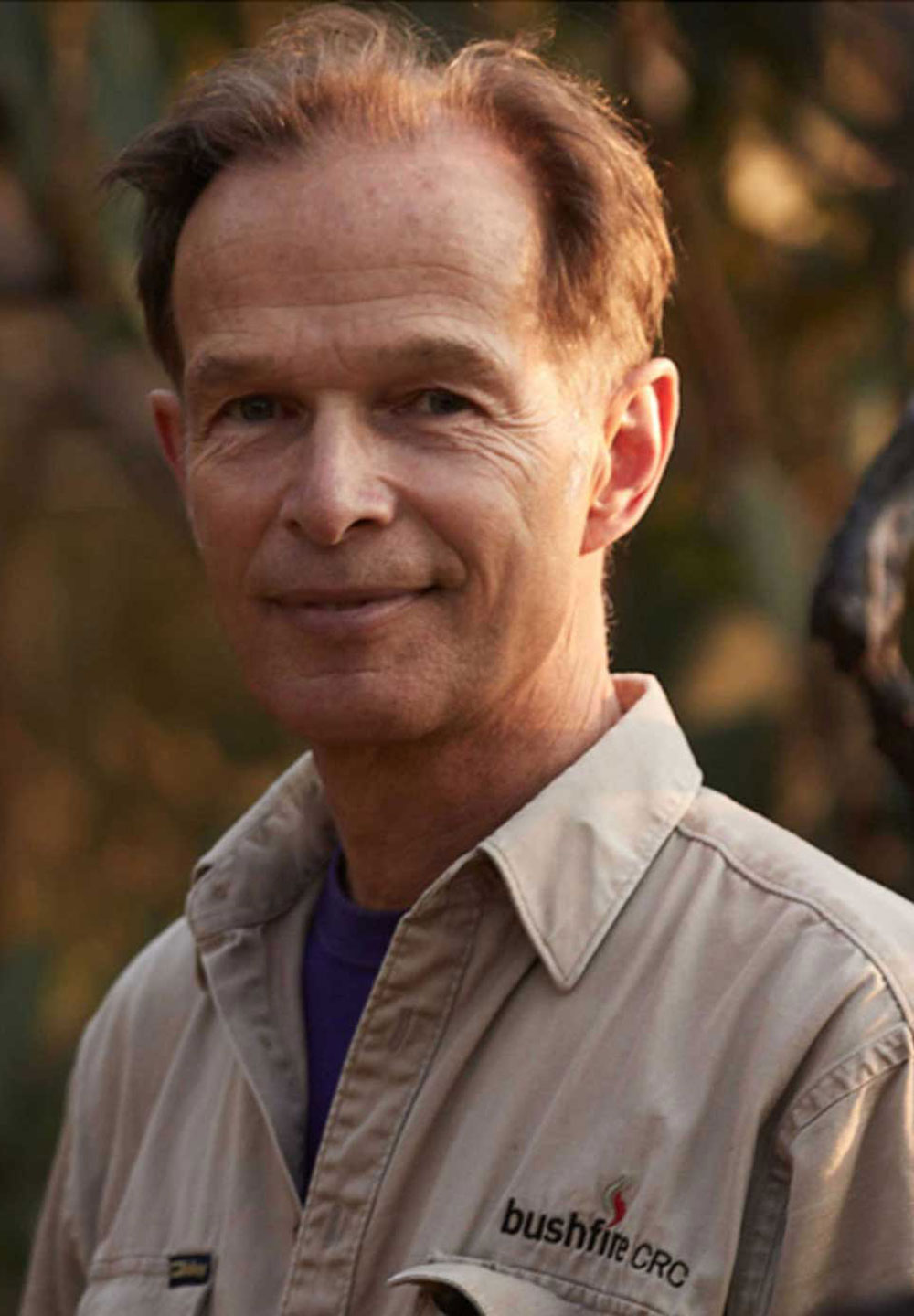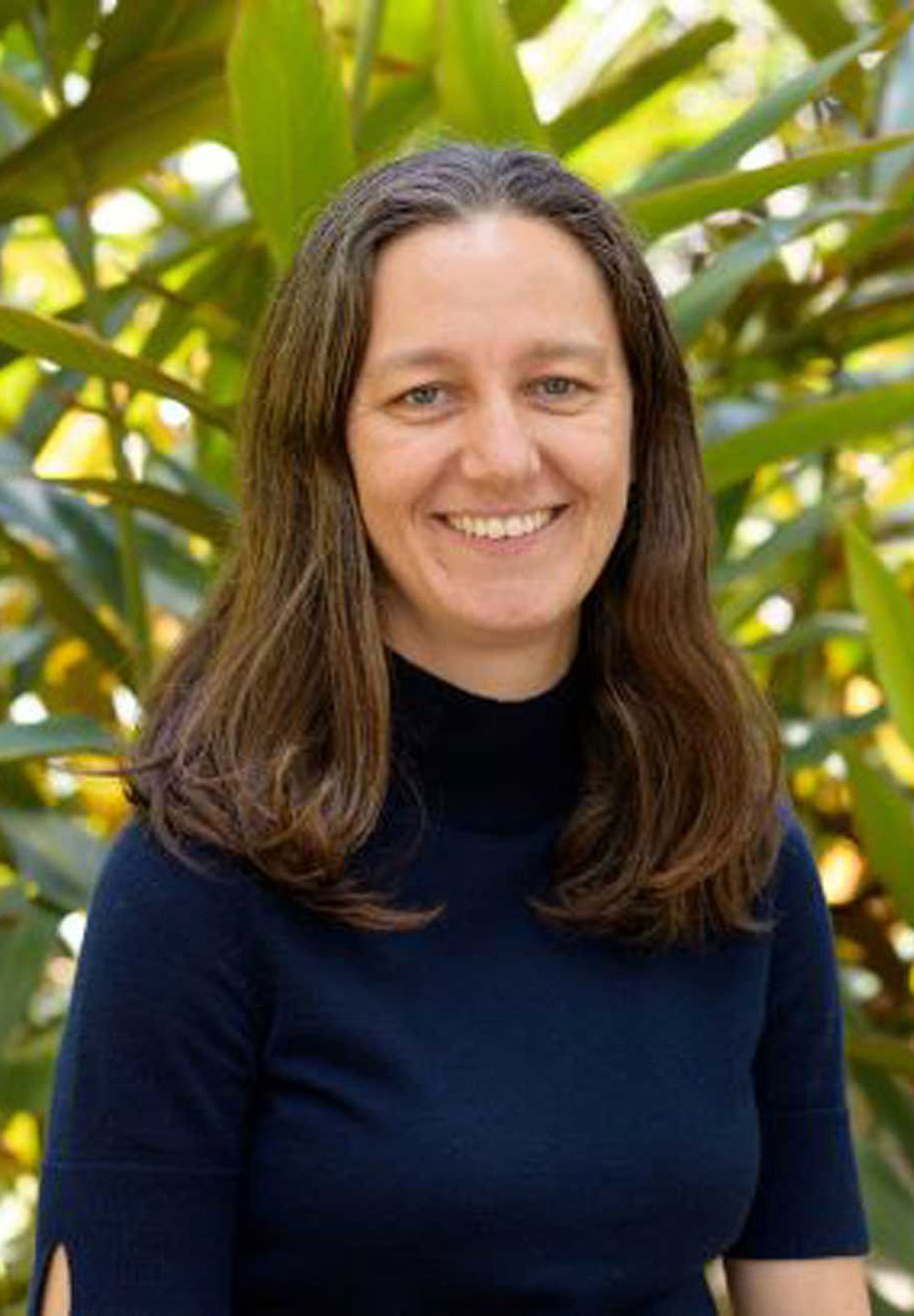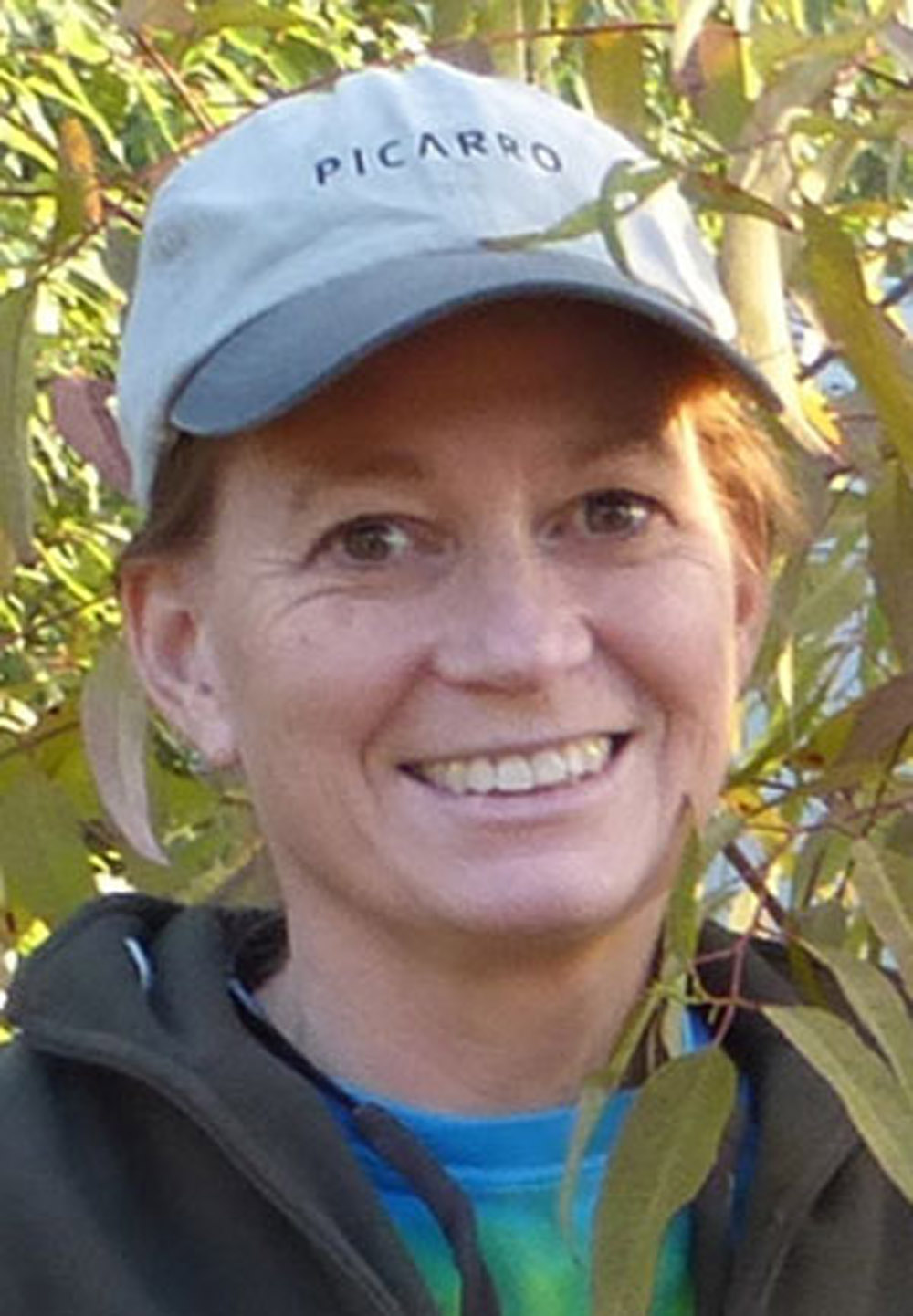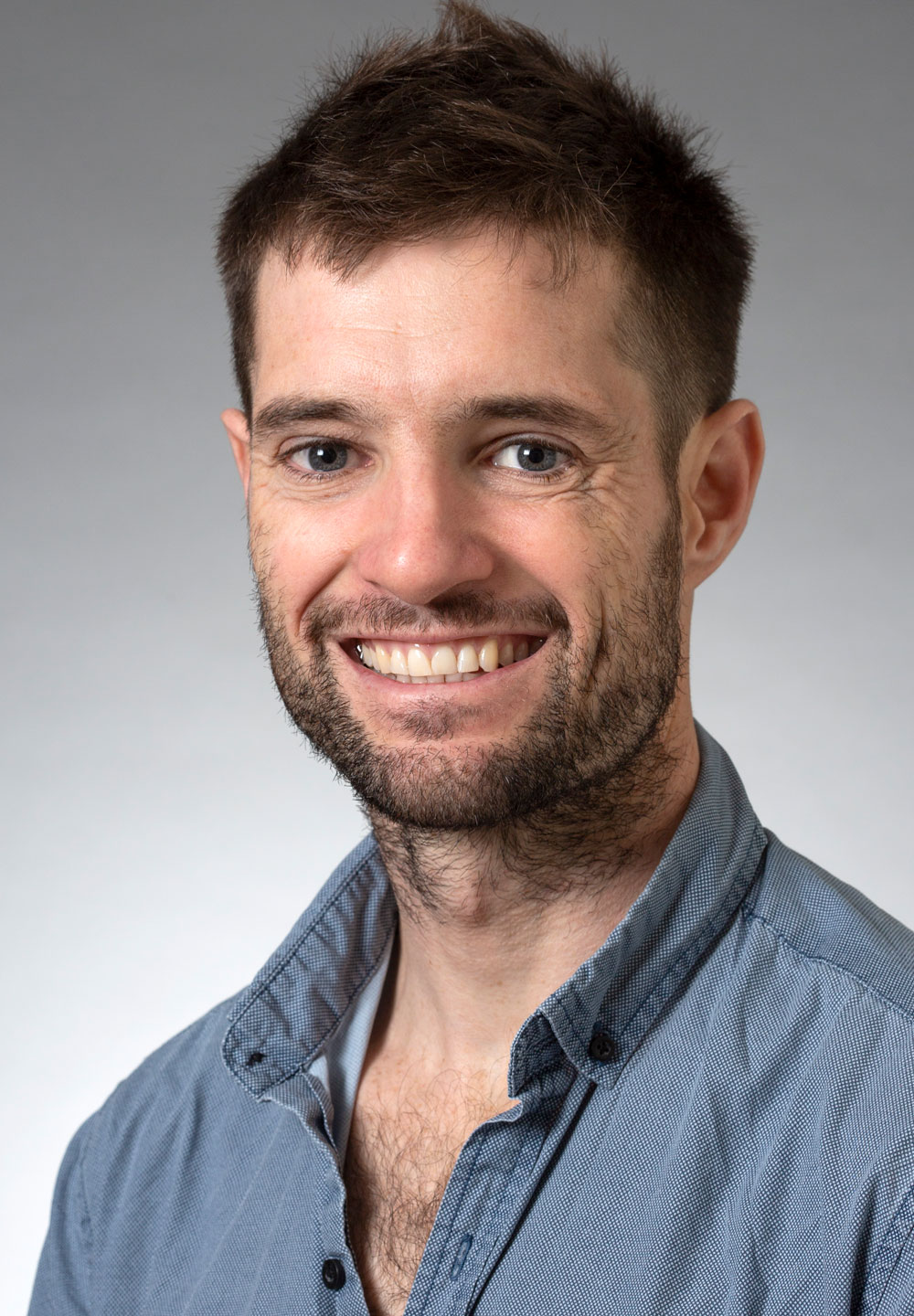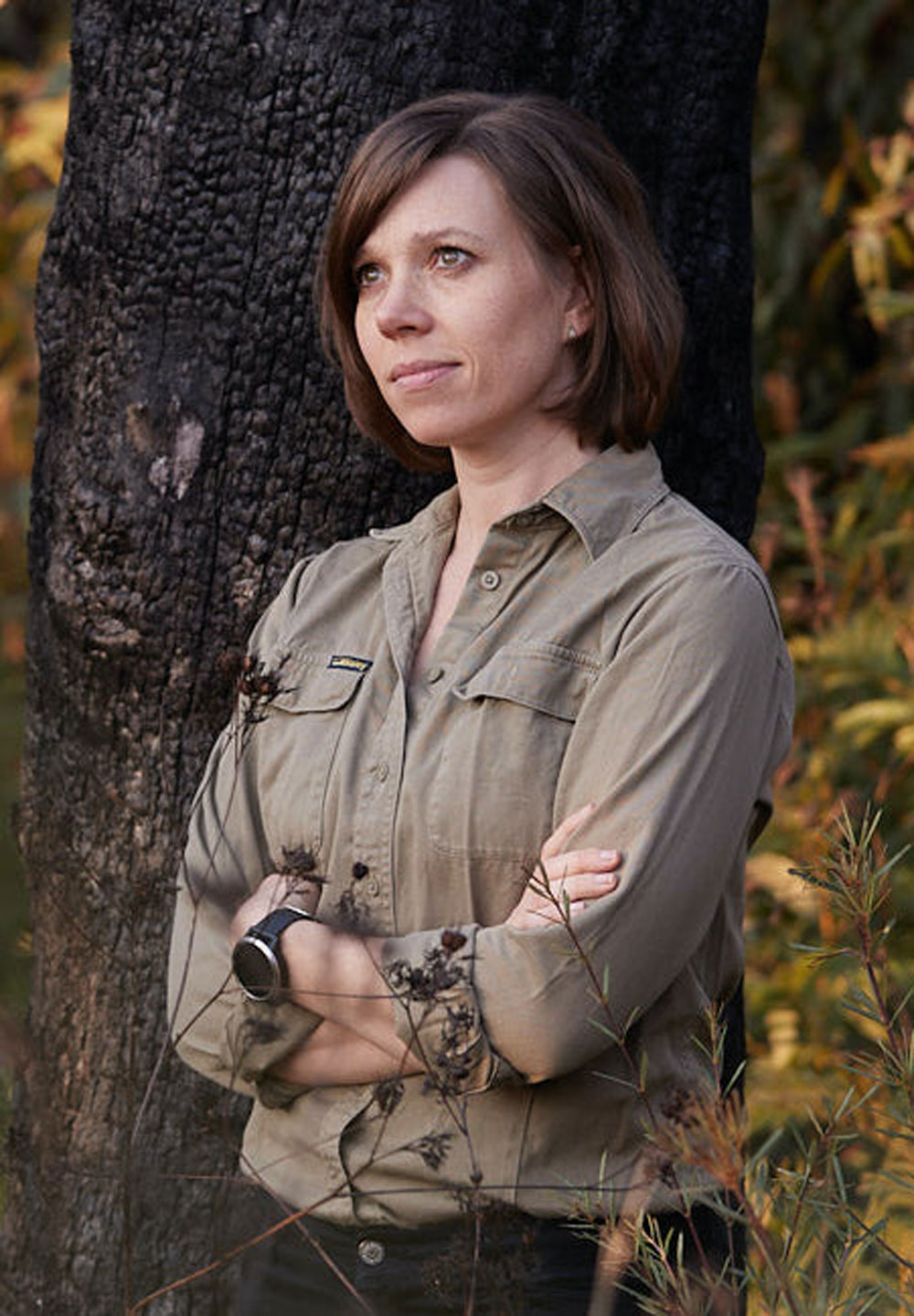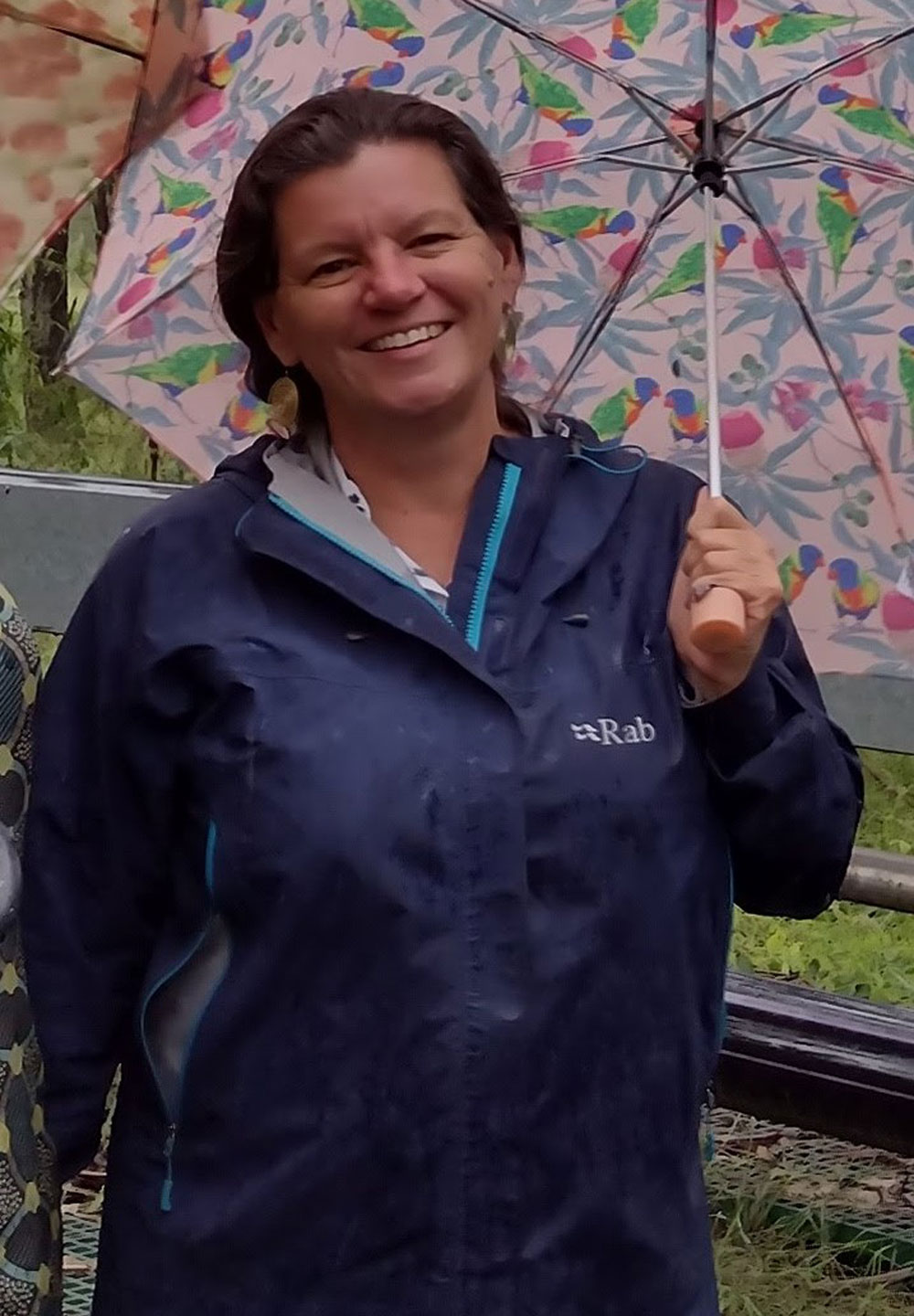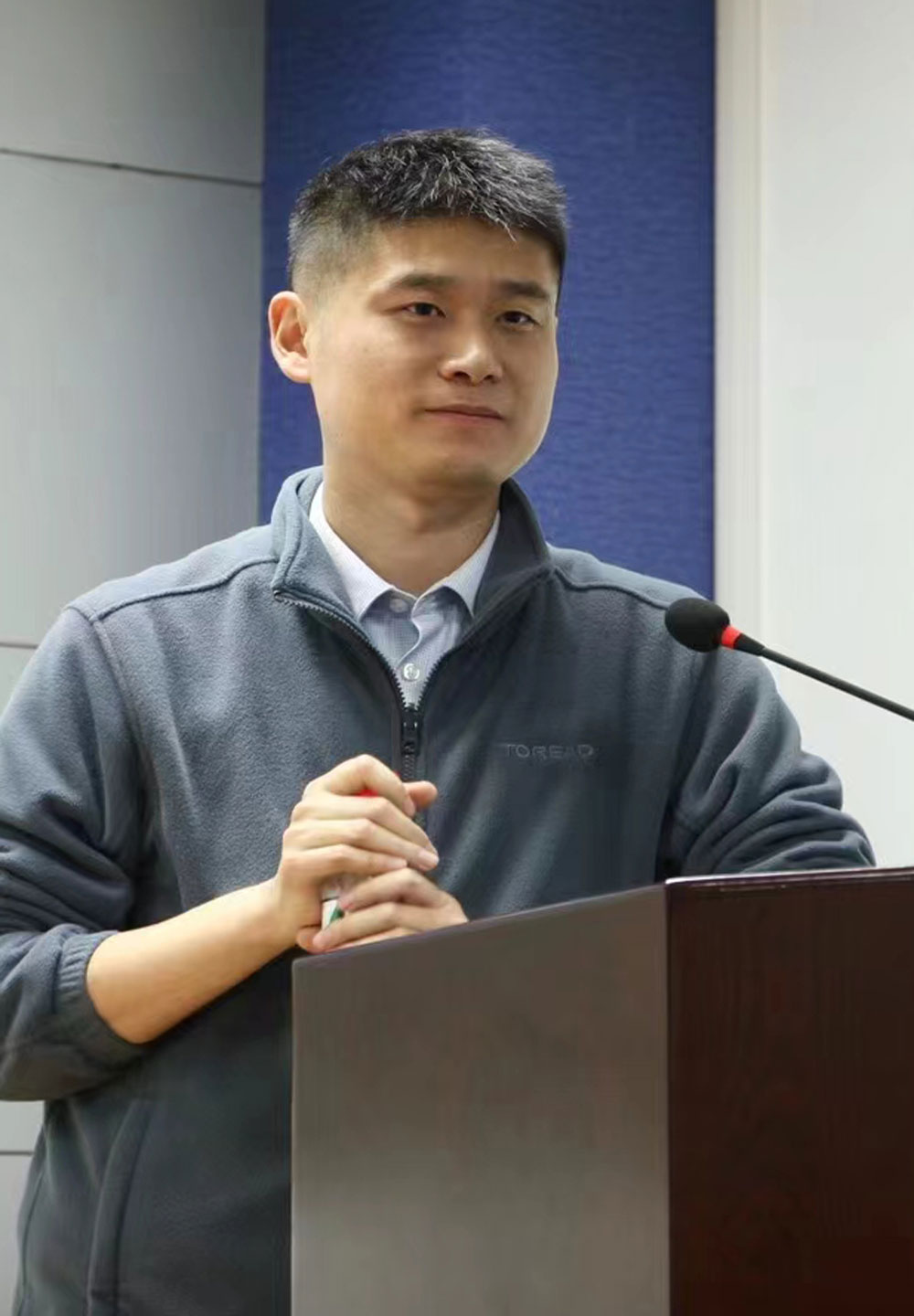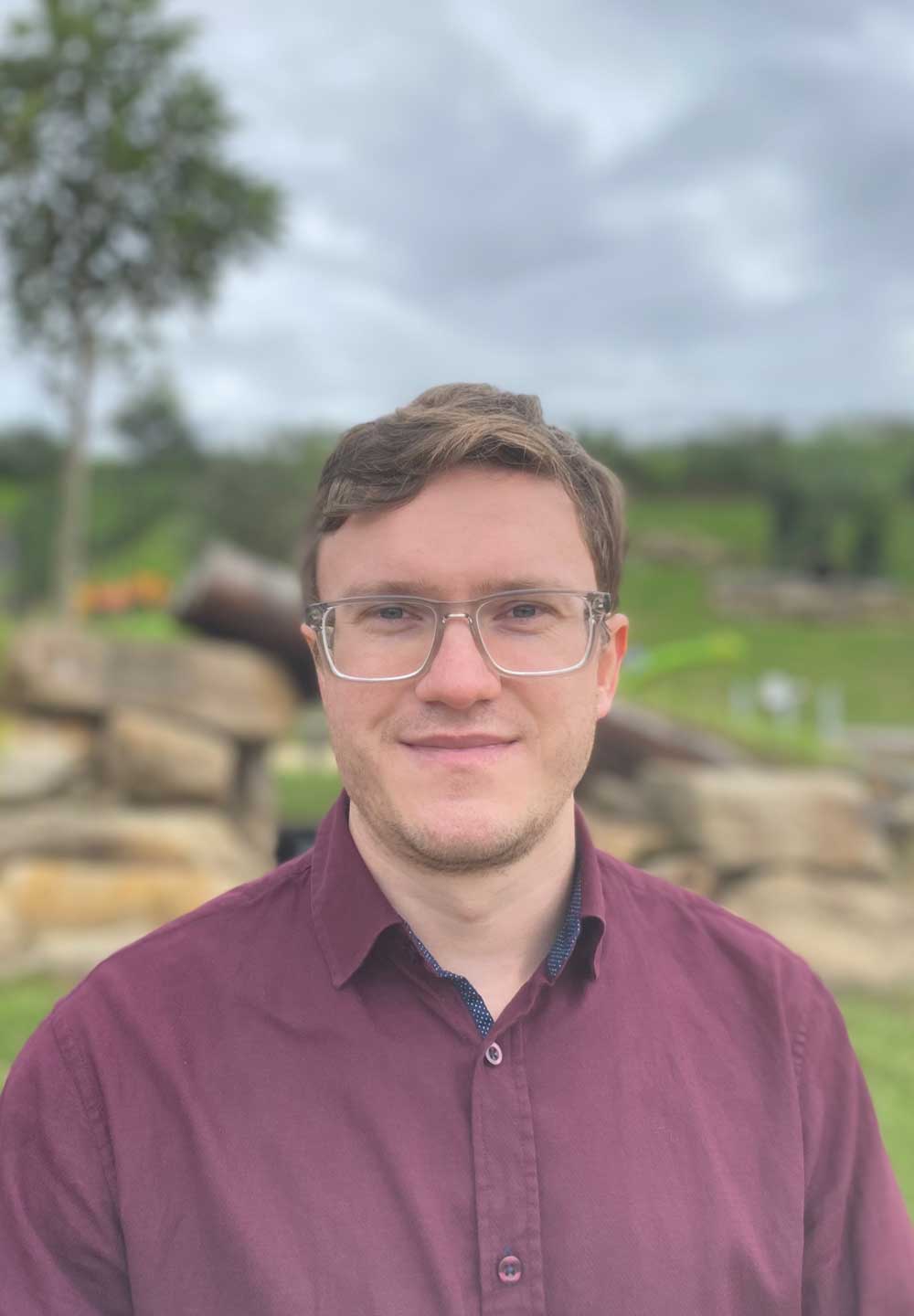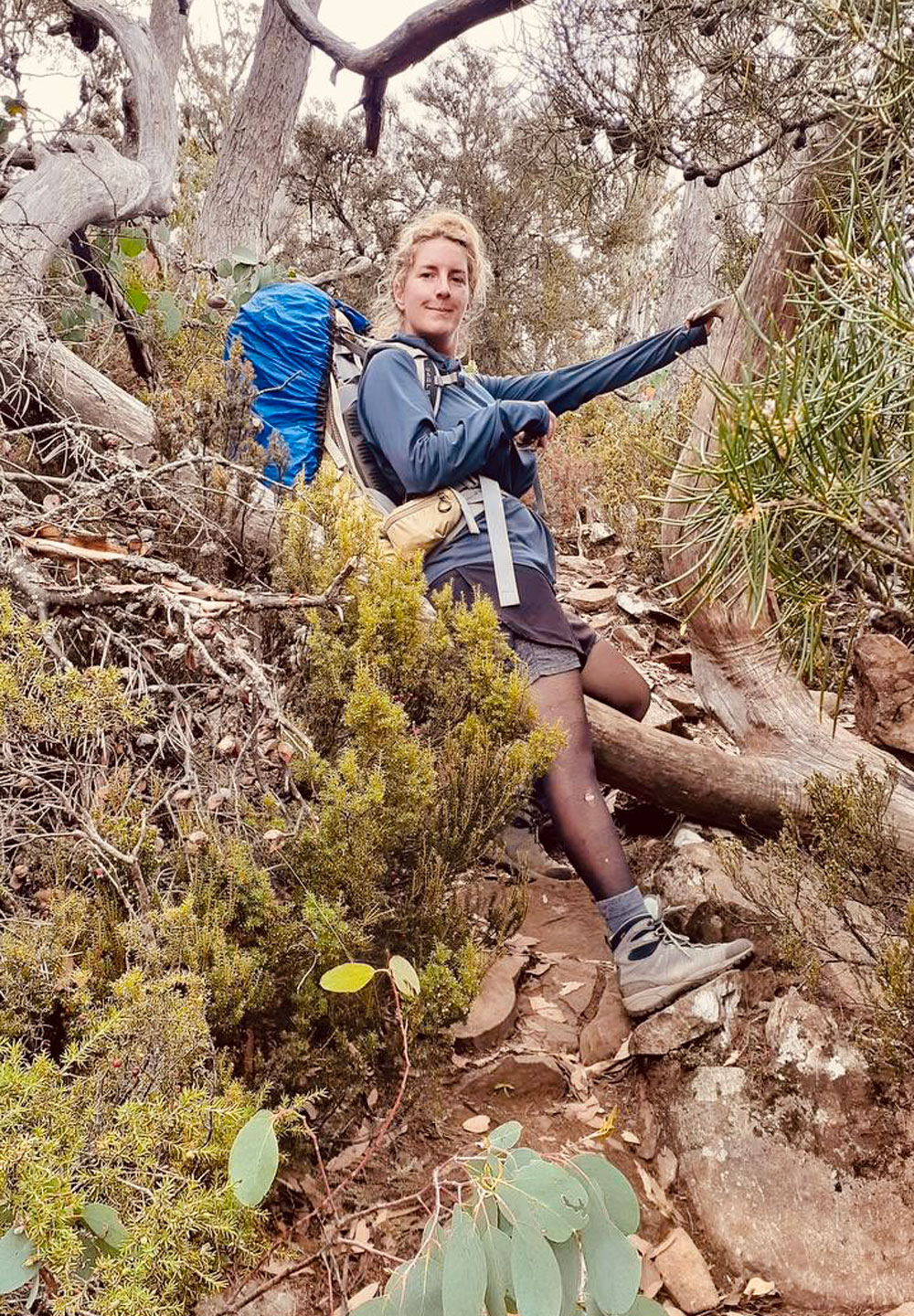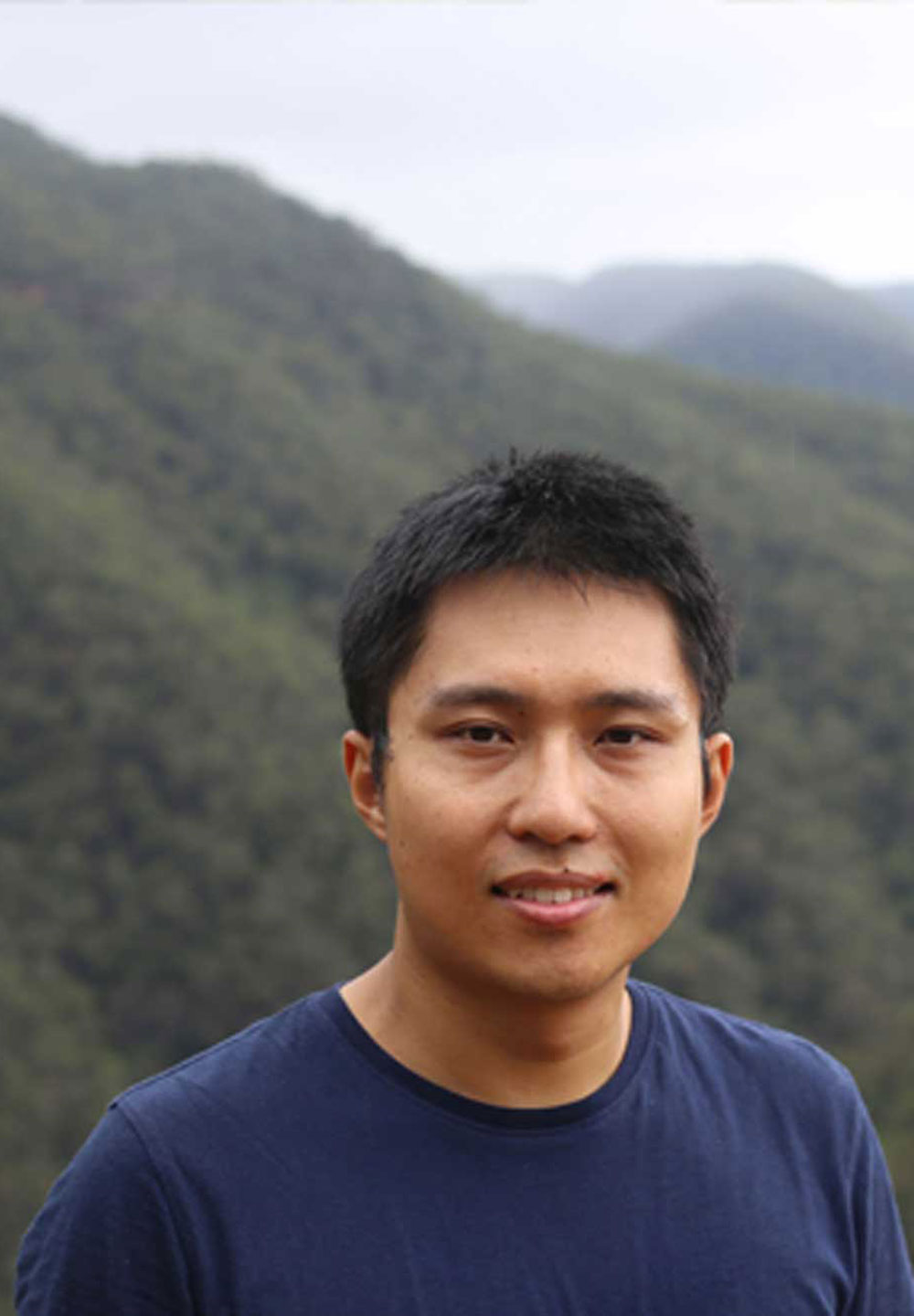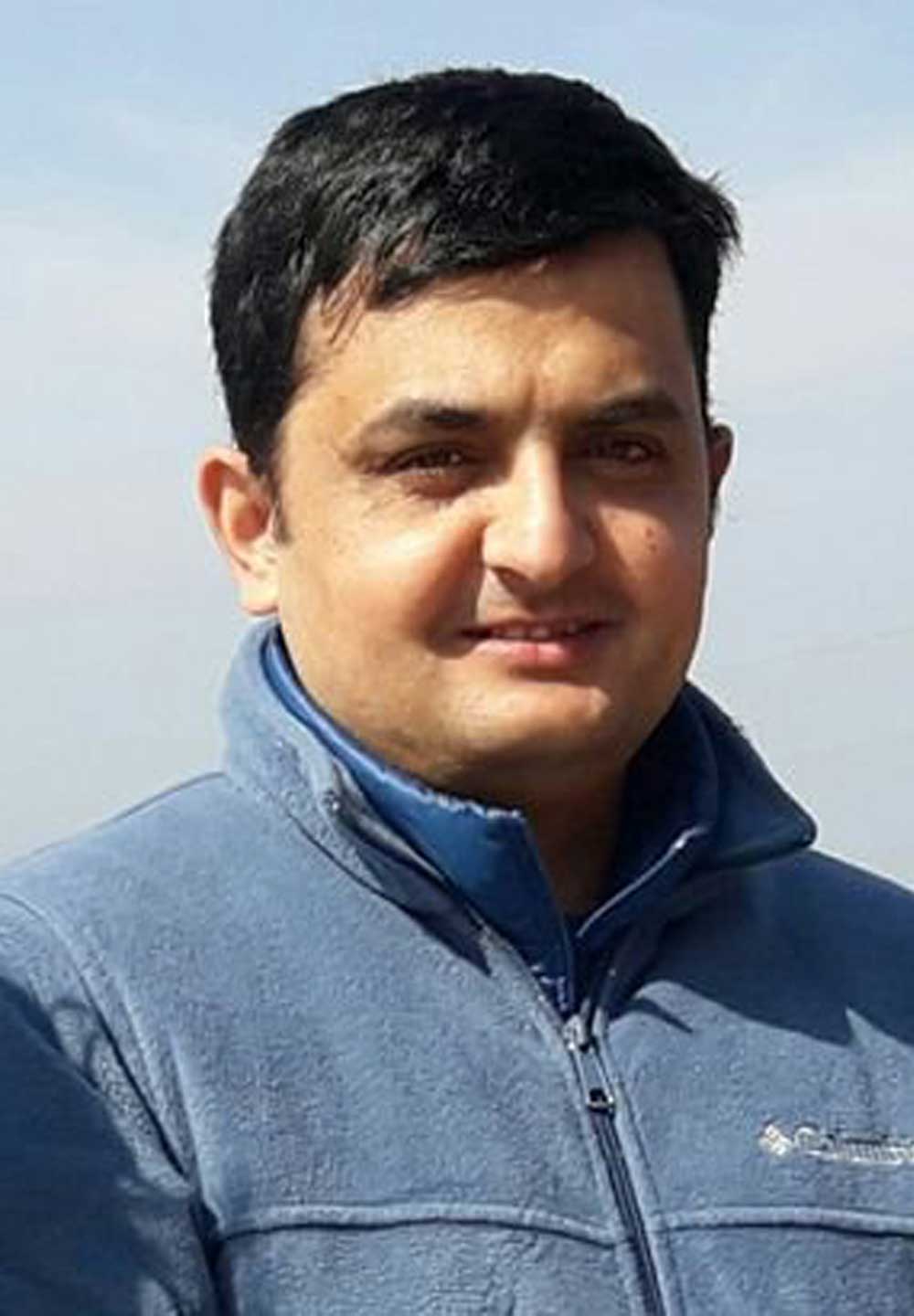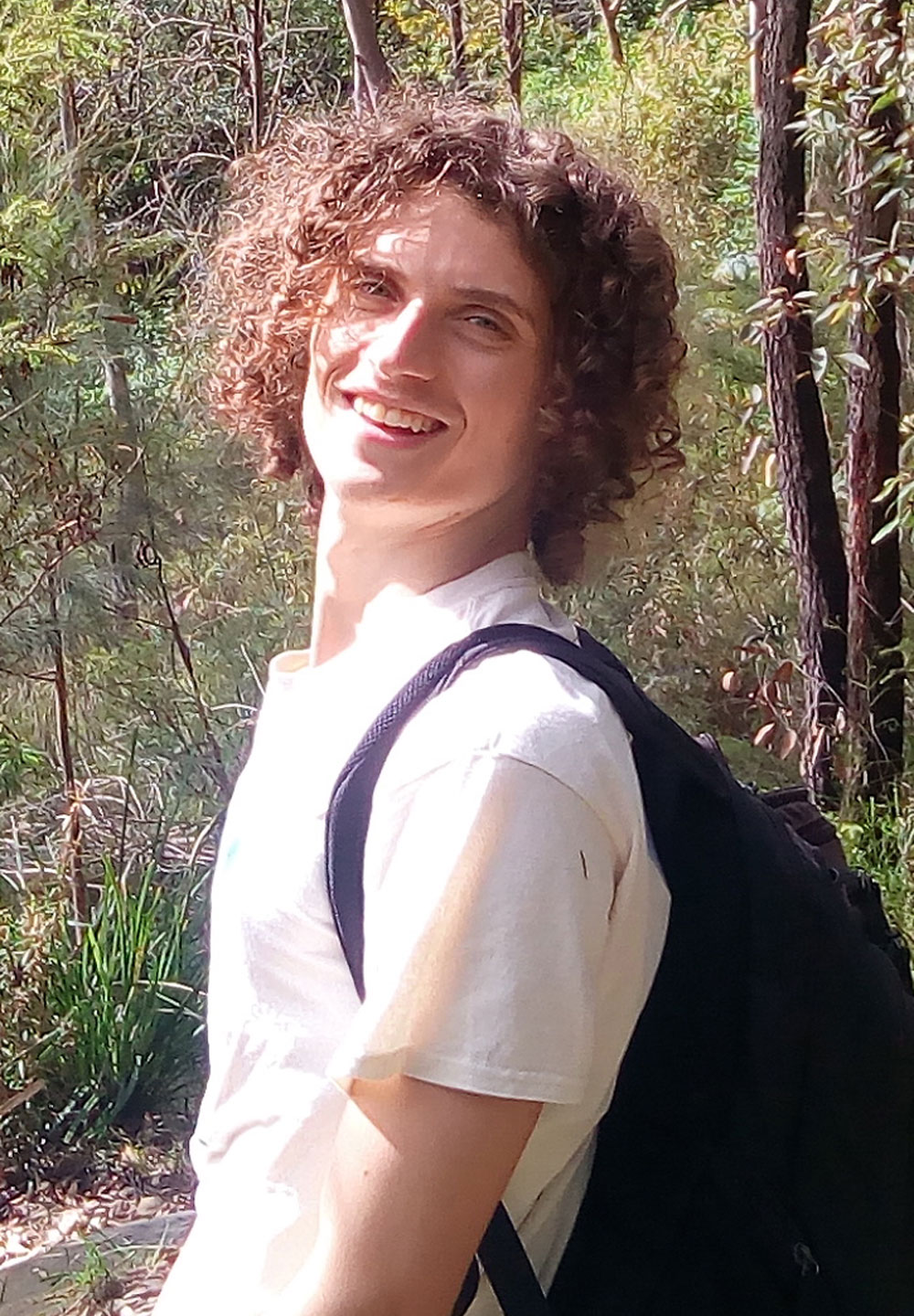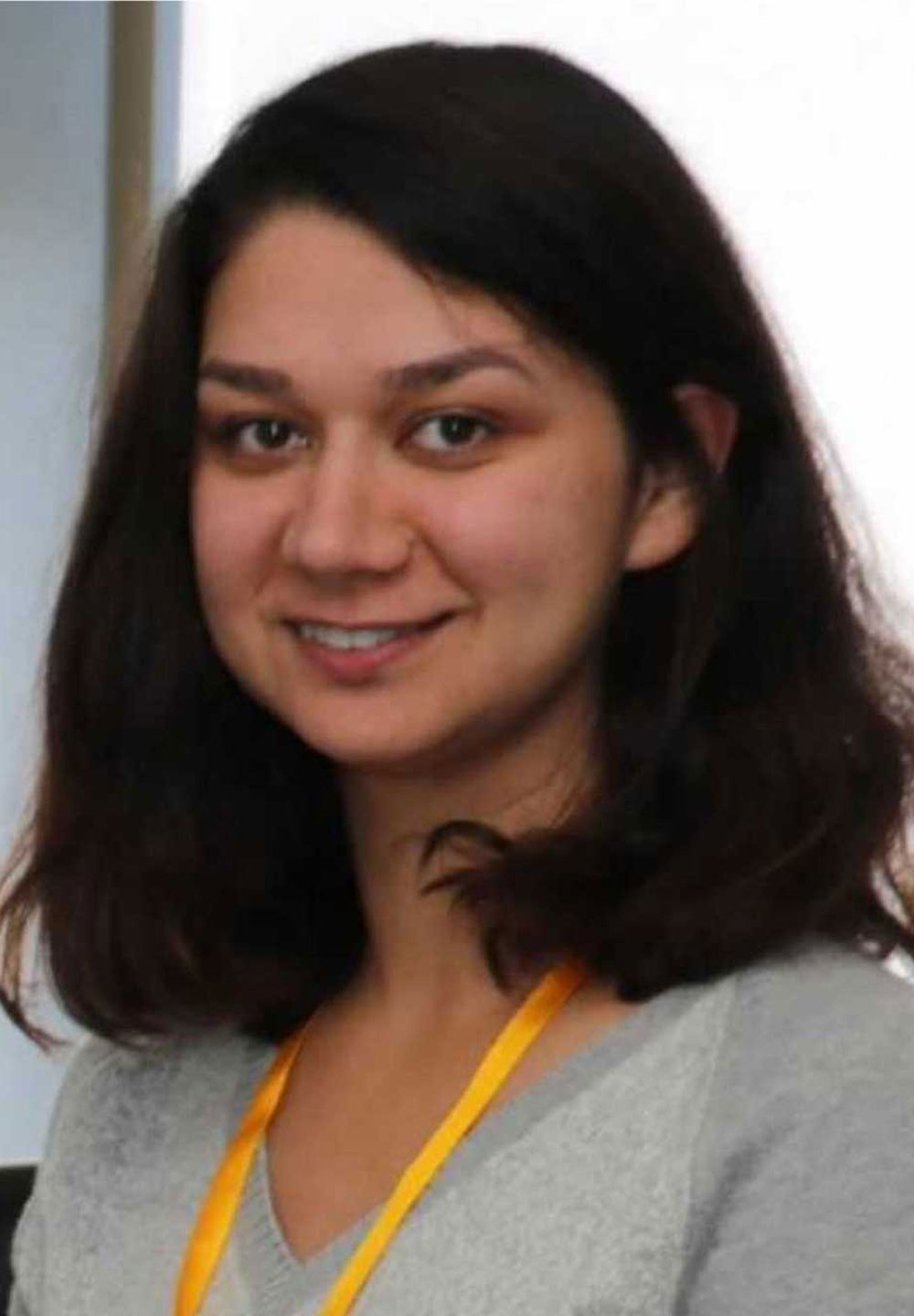Prof Matthias Boer
My research interest focuses on the landscape ecology and management of fire-prone environments. I am particularly interested in the biophysical basis for spatial variation in current and future fire regimes, and in the mechanisms and feedbacks by which fire may mediate, reinforce or constrain impacts of changing climate, [CO2] or land use on ecosystem functions and services such as regulation of water and carbon fluxes or biodiversity conservation.
Assoc Prof Rachael Gallagher
My primary interest is plant conservation, particularly under climate change. My main research areas are conservation biology, ecology, plant functional traits, biogeography, macroecology, species adaptation to climate change and global change biology.
Dist Prof Belinda Medlyn
My research focuses on how plants, especially forests, respond to increasing atmospheric carbon dioxide and climate change. I work at the interface between experiments and models: my aim is to develop evidence-based models of how ecosystem productivity, water use and species composition will be affected by global change, and to do so I work closely with a number of experimental teams world-wide to test and improve ecosystem models.
Assoc Prof Ben Moore
My research focus on plant-animal interactions, chemical ecology and the causes and consequences of variation in plant chemistry. I am particularly interested in the chemical, nutritional and physiological ecology of Australian marsupials, like the koala, that feed on Eucalyptus. How is climate and landscape change altering the ecology of these interactions?
Dr Rachael Nolan
I study how ecosystems respond to disturbance, and what this means for ecosystem services such as carbon sequestration, habitat values and water resources. My research is also developing better tools for predicting bushfires and planning prescribed burns.
Prof Elise Pendall
I`m a soil and ecosystem ecologist who investigates the responses of biogeochemical cycling to climate change and ecological disturbances. Key research questions investigate how climate change and ecological disturbances might impact carbon storage and water loss from these sensitive ecosystems.
Prof Benjamin Smith
I'm an ecologist and ecosystem modeller. I'm interested in the role of the biosphere in regional and global climate dynamics, using Earth system models to examine biogeochemical and biophysical feedbacks of ecosystem change to the atmosphere. I'm developing models for exploring responses of vegetation and ecosystems to drivers such as climate change, rising CO2 concentrations and land use.
Assoc Prof Justin Welbergen
My research is concerned with the ways animals respond adaptively to changes in their social, ecological, and physical environment, especially among birds and bats. I have strong interests in evolutionary ecology, climate change biology, and conservation. Twitter @animalecolab, @batslab, @lyrebirdlab
Research fellows
Dr Chris Gordon
I am a fire and landscape ecologist with a key focus on providing high quality research for environmental and ecosystem management. My research uses field, remote sensing and climate data to identify key drivers of environmental change, with a focus on wildfire ecology and risk management, plant ecology, trophic ecology and statistical inference.
Dr Anne Griebel
I’m a tree physiologist with an interest in disturbance ecology. I’m passionate about unraveling the effects of heat and drought stress on tree health, ecosystem structure and function, and the biosphere-atmosphere exchange of carbon, water and energy. I am particularly intrigued by the trade-offs between carbon sequestration and water loss, interactions between mistletoes and their hosts, and how droughts and heatwaves influence the flammability of Australian ecosystems.
Dr Alison Hewitt
I have a PhD in botany and plant ecology. My research on reproductive biology and ecology of the Melaleuca genus have demonstrated genetic and environmental factors critical to species survival. I have studied Australian native plant responses to shade and temperature as well as disturbance effects on vegetation in Western Sydney and the Blue Mountains. I'm also interested in plant-animal interactions, Eucalyptus, threatened species and flora survey methodology.
Dr Assaf Inbar
I'm an ecosystem modeller and working as part of a team with developing a new community dynamic vegetation model for Australia (Dynamics of Australian Vegetation - DAVE). I have vast knowledge and experience in fire-related ecological, hydrological and geomorphological processes, especially in the South-eastern Australian perspective.
Dr Mingkai Jiang
I’m a terrestrial ecosystem ecologist and an ecosystem modeler. I have a broad research interest in global change ecology, plant physiology, and plant-soil interaction. In my research, I use ecological theory, process-based mathematical models and manipulative experiments to study the impacts of global change on terrestrial ecosystems and the associated consequences for ecosystem services.
Dr Juergen Knaur
I am an ecosystem and land surface modeller with a focus on vegetation responses to climate change. I am currently working on the development of a dynamic vegetation model for Australia, which will be used to simulate ecophysiological and disturbance-related processes, including fire, with the aim to better understand current and future vegetation dynamics.
Dr Jessica Meade
I'm an animal ecologist with a particular interest in animal behaviour, navigation and spatial ecology. My research focus on navigation, involving a combination of high resolution tracking and experimental manipulation to investigate the sensory basis of navigation. Spatial ecology, identifying natural patterns of movement including foraging and migration and cooperative breeding, examining parental investment and helping behaviour.
Dr Lina Teckentrup
I am an environmental modeler with an interest in vegetation dynamics and the associated carbon cycle response. My research interests include vegetation dynamics in semiarid and arid ecosystems and their responses to ongoing climate change, the contribution of terrestrial vegetation to the global carbon cycle on interannual to multidecadal timescales, and developing both statistical and dynamic models of fire dynamics.
Dr Jinyan (Jim) Yang
I'm an ecological modeller with broad interests on plant morphological and ecophysiological processes as well as their responses to climate change. I have investigated the modelling of the responses of Australian grassland phenology to rainfall variability. After that I joined the HIE Bushfire Research Group on the project “The influence of climate change on bushfire fuels in Victoria”.
Postgraduate students
PhD Candidate Kathryn Fuller
I am a fire and forest ecologist with a primary focus on biogeography. My current research uses spatial analysis to quantify relationships between key fuel attributes, stand composition, biophysical drivers and fire behaviour. The overarching goal of my research is to improve upon current methods of predicting fuel properties across forested landscapes of New South Wales in order to inform fire management.
MRes Student Sienna Grady
I am doing a Master of Research at WSU with the Lab of Animal Ecology. Thesis title: Mapping Foraging Resource Availability: Quantifying the Impact of the Australian 2019/20 fires on the Grey-headed Flying-fox - Developing a remote sensing-based methodology that maps flowering in the landscape surrounding a flying-fox colony at high spatiotemporal resolutions.
PhD Candidate Shiva Khanal
Thesis title: Objective quantification of national forest cover and carbon stocks in support of the REDD+ Programme - a methodological study combining remote sensing, forest inventory data and statistical modelling. Supervisors: A/Professor Matthias Boer, Professor Belinda Medlyn, Dr Rachael Nolan
PhD Candidate William McNeice
I’ve studied in Australia and Europe with a focus on forest and fire ecology. In my research project I’m applying methods from plant physiology to the context of forest flammability. I aim to explain how hydraulic traits determine the flammability of forest and woodland trees in eastern Australia by controlling the water content of fine fuel, a crucial component of large wildfires.
PhD Candidate Simin Rahmani
I received my Master of Environmental Biology from University of Wollongong (UOW) in 2018. I studied the pollution level from bushfire smoke plumes. I started working as a research assistant in UOW and Western Sydney University where I collected field data, did laboratory works and statistical analysis to examine effects of drought and fire on forest mortality and recovery. After that, I started my PhD in the field of fire ecology at WSU in 2021. My research focuse on drought and fire integration and their effect on tree mortality and recruitment.
Collaborators
Prof David Bowman
David Bowman is Professor of Pyrogeography and Fire Science at University of Tasmania. David Bowman is exploring the relationship between fire, landscapes and humans. He co-authored the textbook 'Fire on Earth – an introduction' and is leading the pack globally in this complex field. "As a result of human impacts, there are unusual processes now occurring in the landscape. We need to understand the impacts that we are having and the consequences." For more information please follow the link below.
Emeritus Professor Ross Bradstock
Emeritus Prof Ross Bradstock is the former Director of the Centre for Environmental Risk Management of Bushfires and the NSW Bushfire Risk Management Research Hub. Funding sources for his research include the NSW Government, ARC, NSW Environmental Trusts, Bushfire and Natural Hazards CRC, CSIRO, USGS and the European Union. Ross is now Emeritus Professor at Emeritus Professor Faculty of Science, Medicine and Health Centre for Sustainable Ecosystem Solutions, University of Wollongong, Australia.
Prof Geoffrey Cary
Prof Geoffrey Cary is a Professor at Bushfire Science, Fenner School of Environment and Society, ANU. Geoff’s research interests include: landscape-scale simulation of fire management & climate change effects on fire regimes; fire ecology from genes to communities; house loss in wildland fire; and laboratory experimentation of fire behaviour. He co-leads an international group of landscape-scale wildland fire simulation modellers. For more information please follow the link below.
Dr Hamish Clarke
Dr Hamish Clarke is a Senior Research Fellow at School of Earth, Atmospheric and Life Sciences, Faculty of Science, Medicine and Health at University of Wollongong, Australia. He is Deputy Director of the Centre for Environmental Risk Management of Bushfires (CERMB) at UOW since 2016. I am leading a project on optimising cost-effective prescribed burning as part of the NSW Bushfire Risk Management Research Hub. Before that I led a similar project with the Bushfires and Natural Hazards CRC. I work partly out of the Hawkesbury Institute for the Environment (HIE) at Western Sydney University.
Dr Joe Fontaine
Dr Joe Fontaine is a Lecturer in Environmental Science at Murdoch University, Australia. His focus is on assessing bushfire threat and impact of shortened fire intervals in Western Australia or examining impacts of high-severity fire and post-fire management on forest development and wildlife in Western North America. My work also includes investigation of the impacts of urbanisation on Mediterranean woodlands and methods, such as topsoil transfer, to restore some level of biodiversity to degraded urban reserves. For more information please see link below.
Prof Trent Penman
Prof Trent Penman is a professor and team leader at FLARE Wildfire Research group in the School of Ecosystem and Forest Sciences at The University of Melbourne. Trent is a fire risk modeller interested in all aspects of bushfire management. His work covers a range of theoretical and applied aspects of bushfire behaviour and management. The main focus of his research is optimising management expenditure to reduce the risk of detrimental fire impacts on people, property and the environment. For more information please see link below.
Assoc Prof Owen Price
Dr Owen Price is a Senior Research Fellow focusing on Bushfire Smoke at Faculty of Science, Medicine and Health, Centre for Sustainable Ecosystem Solutions at University of Wollongong, Australia. Owen conducts research on bushfire risk. This includes impacts on human health (smoke), assets (houses), and environmental values (fauna and flora). For more information and contact please see link below.
Prof Víctor Resco De Dios
Professor of Tree Biology at SWUST (Southwest University of Science and Technology, Mianyang, China) & UdL. My research mainly revolves around how plants regulate the trade-off between carbon acquisition and water losses and on the implications of this regulation across scales: from plant growth to changes in wildfire activity. For more information and contact please visit the link below.
Prof Jose-Vicente Oliver Villanueva
José-Vicente Oliver-Villanueva is a Director for the Research Group ICT vs Climate Change at Universitat Politècnica de València, Institute for Information and Communication Technologies (ITACA). Specialized on Forest Science and Engineering, Circular Bioeconomy, Climate Change mitigation and adaptation and Environmental Engineering Advanced ICTs applied to Climate Change. For more info and contact please see website below.
Dr Grant Williamson
Dr Grant Williamson is a postdoctoral fellow at University of Tasmania. He is a landscape ecologist and spatial scientist, whose previous research, has included the impacts of mosquito control and climate change on mangrove communities, the climatic and human drivers of wildfires and fire danger across Australia, and the dynamics and human health impact of smoke wildfires and prescribed fires on human health.
Assoc Prof Marta Yebra
Dr Marta Yebra is a Senior Lecturer in Environment and Engineering at the Fenner School of Environment & Society and Research School of Aerospace, Mechanical, and Environmental Engineering ), Mission Specialist of the ANU Institute for Space and Associate editor for Remote Sensing of Environment. Her research focuses on using remote sensing data to monitor, quantify and forecast natural resources, natural hazards, and landscape function and health at local, regional and global scales. For more info please see website below.
